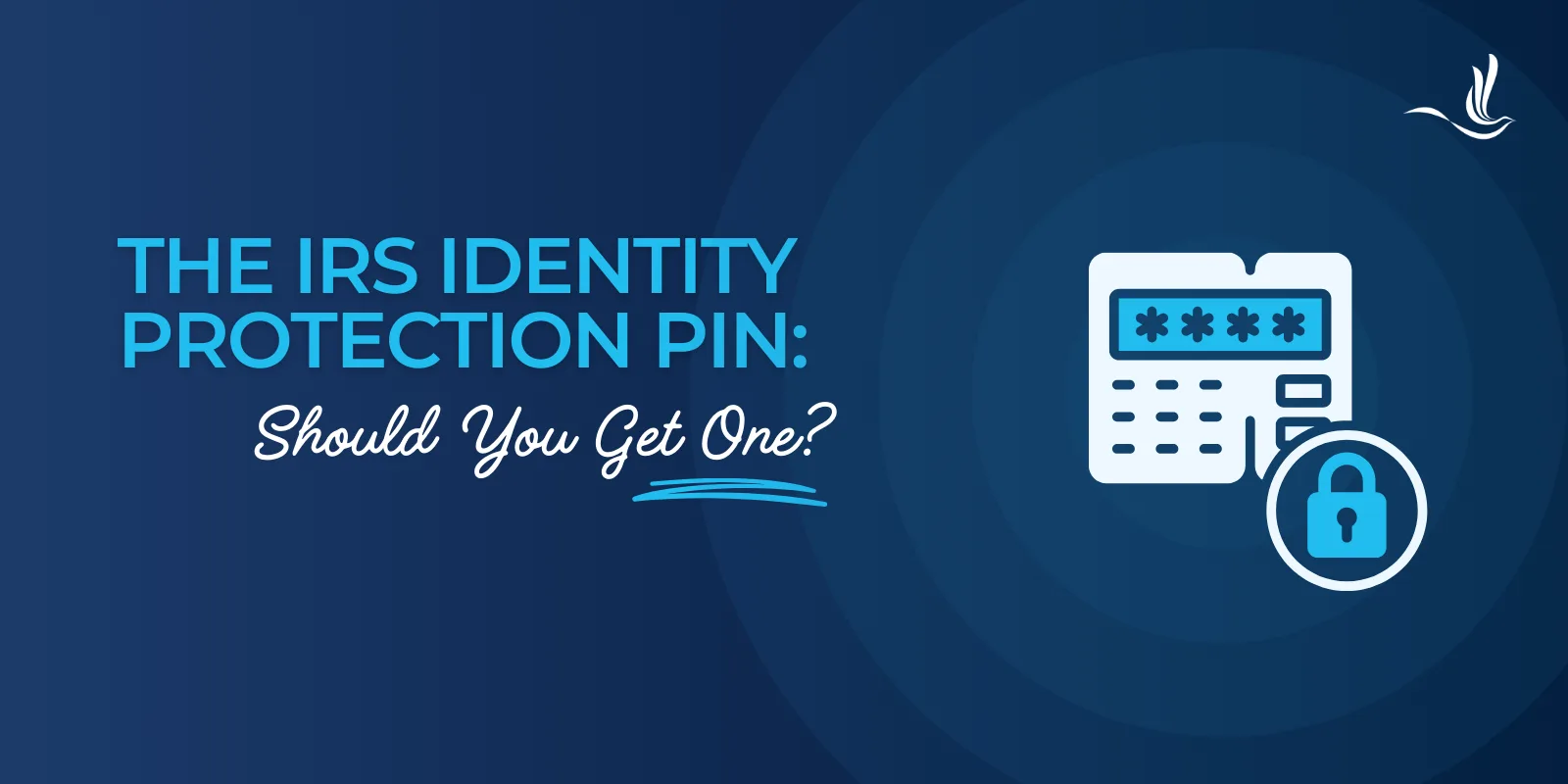Tax season can be stressful enough on its own, but for many, it comes with an added worry: identity theft. In recent years, the IRS has reported tens of thousands of fraudulent tax filings each season. Many of these were submitted using stolen Social Security numbers (SSNs) before the actual taxpayer had a chance to file. To combat this growing threat, the IRS offers a powerful, free tool: the Identity Protection Personal Identification Number, more commonly known as the IP PIN.
But what exactly is an IP PIN, and should you get one if you haven’t experienced identity theft? The program was originally reserved for victims of tax-related fraud. However, the IRS has since opened it up to all taxpayers across the country. This article will help you understand how the IP PIN works, weigh the benefits and drawbacks, and determine whether it’s a smart move for your personal situation.
What Is an Identity Protection PIN?
An IP PIN is a six-digit number issued by the IRS that helps confirm your identity when you file your federal tax return. Think of it as an additional password for your tax filing process. Unlike your SSN, which rarely changes, the IP PIN is renewed every year. It must be included on your return to ensure that it’s accepted.
Once you enroll in the program, no one—including you—can file a valid tax return using your SSN unless the correct IP PIN is included. This helps stop identity thieves. Even if they have your name, address, and Social Security number, they won’t be able to successfully file a fraudulent return without this extra layer of verification. The PIN is only known to you and the IRS. For added security, even tax professionals and third-party software providers are not able to access it unless you give it to them directly.
Who Is Eligible for an IP PIN?
For many years, the IP PIN program was only available to confirmed victims of identity theft. These individuals would receive a notice from the IRS—usually in the form of Notice CP01A—informing them that they were enrolled in the program and providing their unique PIN for the tax year.
However, the IRS recognized that waiting until after identity theft occurs isn’t ideal. In response, the agency expanded the program in recent years. Now, it’s voluntary and accessible to all taxpayers across all 50 states and the District of Columbia. This move was a significant shift in IRS policy and has allowed millions to proactively secure their tax identities. To qualify, you simply need to verify your identity using the IRS’s online tools or alternative methods. There is no requirement to have been a victim of fraud in order to opt in.
Pros of Getting an IP PIN
One of the biggest advantages of enrolling in the IP PIN program is peace of mind. Once you have an active PIN, the IRS will reject any electronically filed tax return that doesn’t include it. This significantly reduces the risk that someone else could use your information to file a fake return, claim a fraudulent refund, or any other common tax scams.
The IP PIN can also offer protection for dependents. For example, say someone attempted to claim your child as a dependent to receive additional tax credits. The IRS would block the submission if the correct PIN for your child wasn’t included. This is particularly helpful for divorced or separated parents who want to prevent the improper use of their dependents’ information.
Imagine a scenario in which an identity thief files a fake return using your SSN in January. Without an IP PIN in place, that fraudulent return might be accepted and processed, delaying your legitimate refund and triggering a long and frustrating process to resolve the matter. With an IP PIN, that fake return would be rejected immediately. You could then file with confidence knowing your information is safe.
Cons and Considerations
While the IP PIN program offers robust protection, it’s not without a few drawbacks. The most important thing to understand is that once you opt in, you must use your IP PIN every single year. There’s no way to unenroll from the program unless the IRS decides to remove you. However, this is rare. If you forget your PIN or lose access to it, you’ll need to go through the IRS’s verification process to retrieve it before you can file your return.
This can cause delays, especially during peak tax season when IRS systems are overloaded. Additionally, managing an annual PIN may be confusing for those who are less comfortable with technology or who rely on others—such as a tax preparer—to file on their behalf. In those cases, you must ensure that the correct PIN is shared securely with your preparer each year.
There’s also a small learning curve involved with setting up and managing your IRS account. For example, let’s say you’ve frozen your credit reports for identity protection. You may need to temporarily lift those freezes to complete the identity verification process online. Still, these are relatively minor issues compared to the potential cost and stress of recovering from tax identity theft.
How to Get an IP PIN
The easiest way to obtain an IP PIN is by using the IRS’s “Get an IP PIN” tool. To use this tool, you’ll need to create or log into an IRS online account. You’ll be asked to provide personal details such as your name, address, date of birth, Social Security number, and financial verification information, such as data from a credit card or loan.
Once your identity is confirmed, the IRS will display your six-digit IP PIN. You must use this PIN on all federal tax returns filed during the calendar year. You’ll receive a new PIN each January, which you can access again by logging into your IRS account.
If you’re unable to verify your identity online, the IRS offers alternative methods. You can complete Form 15227 and mail it to the IRS, provided you meet the income and access criteria. The agency may then call you to verify your identity before issuing your PIN by mail. In some cases, you may be required to visit a Taxpayer Assistance Center in person to complete the enrollment process.
What to Do If You Lose Your IP PIN
It’s not uncommon for people to misplace their PIN or forget where they stored it. If this happens, the quickest way to retrieve it is by signing into your IRS online account. Once logged in, you can view your current PIN for the tax year under the “Profile” section.
If you can’t access your account or forgot your login credentials, you may need to go through the IRS’s account recovery process, which involves verifying your identity again. In certain limited cases, the IRS can reissue your PIN by mail, but this may take several weeks. It’s best to plan ahead and make sure you have your IP PIN on hand before tax season ramps up. Delays caused by lost or forgotten IP PINs can affect the timely filing of your return and, consequently, your refund. For this reason, the IRS encourages taxpayers to store their PIN in a secure but accessible location each year.
Should You Get an IP PIN?
Whether or not to get an IP PIN depends on your personal risk profile and your comfort with managing another layer of security. There’s no one-size-fits-all answer, but there are some situations where opting in makes a lot of sense. If you’ve been a victim of identity theft in the past, or even had a data breach involving your SSN—through a healthcare provider, credit bureau, or employer—you’re at a higher risk of being targeted by tax fraudsters. In that case, enrolling in the IP PIN program is a proactive and effective step.
Parents may also want to consider enrolling their dependents. While it’s more difficult to set up an IP PIN for a child due to identity verification requirements, the added protection can be worth it. This is especially if your child’s SSN was part of a breach or if you’ve experienced issues with someone else improperly claiming your dependents in previous years.
On the other hand, if you’ve never had a data security issue, don’t anticipate one, and prefer to keep your tax filing process as simple as possible, you might decide to hold off. The extra step of entering a PIN each year—while minor—can feel like a hassle to some, especially those who use third-party preparers and don’t want to worry about securely passing along another piece of sensitive information.
But for many people, the benefits far outweigh the drawbacks. Identity theft can take months to resolve and can delay your refund or even cause audits. The IP PIN acts as a strong safeguard, blocking fraudulent returns before they can be processed.
Tax Help for Victims of Tax ID Theft
The IRS Identity Protection PIN is a smart and increasingly popular option for taxpayers who want to add another layer of security to their tax returns. It’s free, effective, and now widely available to anyone who wants it—not just identity theft victims. If you’re still unsure whether the IP PIN is right for you, consider speaking with a trusted tax professional. They can help assess your risk, guide you through the enrollment process, and ensure your overall filing strategy keeps your personal information as secure as possible. Optima Tax Relief is the nation’s leading tax resolution firm with over a decade of experience helping taxpayers with tough tax situations.
If You Need Tax Help, Contact Us Today for a Free Consultation



.jpg)






















